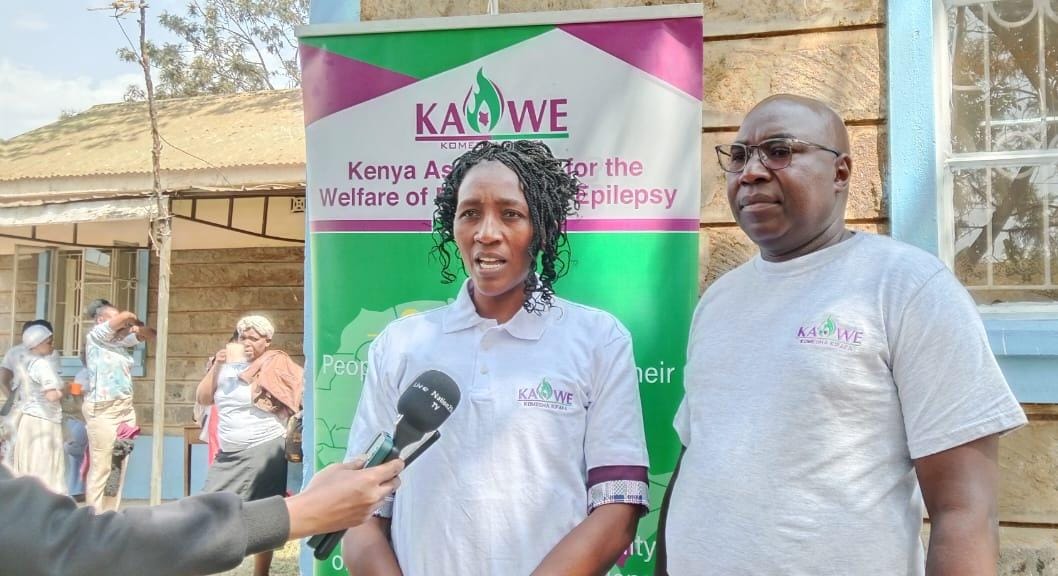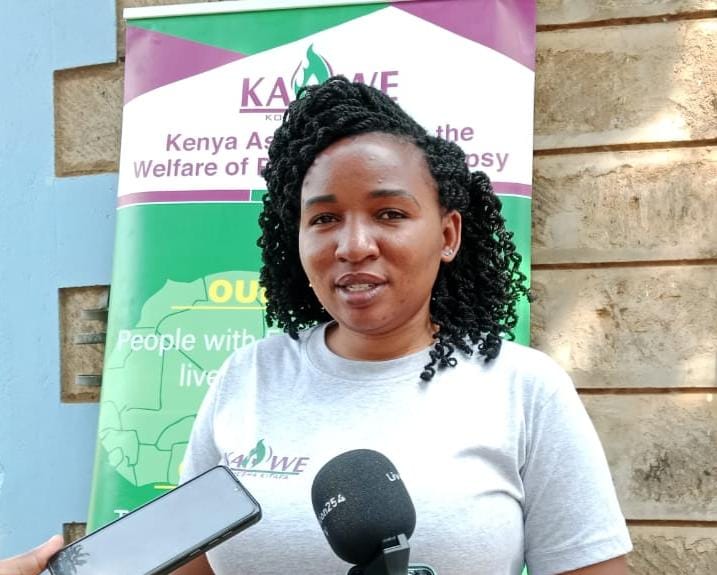The Kenya Association for the Welfare of People with Epilepsy (KAWE), in collaboration with Nairobi health officials, has ramped up efforts to raise awareness and combat stigma surrounding epilepsy in low-income areas, including Kariobangi and Dandora.

During an epilepsy awareness campaign held Monday at Kariobangi North Health Centre, Clinical Officer Psychiatrist Jecinta Gakuu highlighted the urgent need to bridge gaps in diagnosis, treatment, and public understanding of the neurological condition — one of the most prevalent in the region.
“We are here to create awareness about epilepsy, which is a priority mental health condition that we can diagnose and manage at the primary care level — from level 1 to level 3 facilities,” said Gakuu. “There is a significant knowledge gap both in the community and among healthcare workers, which has fueled stigma and discrimination against those living with epilepsy.”
She noted that many patients shy away from seeking treatment due to widespread misconceptions, while some healthcare providers remain ill-equipped to diagnose and manage the condition effectively. To address this, the Nairobi health department has launched targeted sensitization sessions for Community Health Promoters (CHPs) and continuous medical education (CME) programs for health workers in sub-counties such as Embakasi North and Kasarani.

Nairobi has also been selected as a pilot region for the government’s free distribution of epilepsy drugs. However, only individuals registered with the National Council for Persons with Disabilities (NCPWD) are currently eligible. KAWE has stepped in to assist epilepsy patients with registration so they can access the free medication.
“We’ve scheduled mental health assessment drives on August 25 at Ngundu Health Centre in Kamulu and on August 26 at Kariobangi Health Centre,” Gakuu added. “Those diagnosed with epilepsy during these assessments will be enrolled for free treatment at designated facilities.”
Currently, epilepsy care is integrated into mental health services at several public health facilities in Nairobi, including:
Kariobangi Health Centre – Every Tuesday
Dandora Health Centre II – Every Monday
Mwiki Health Centre (Kasarani) – Every Wednesday
Njiru Level 4 Hospital – Weekly clinics
Ngundu Health Centre – Tuesdays and Thursdays
Gakuu said higher-tier hospitals such as Mama Lucy Kibaki, Mbagathi, and Pumwani Maternity also operate epilepsy and mental health clinics from Monday to Friday.
Faith Muthoni, a representative from KAWE, emphasized the organization’s grassroots efforts to challenge the myths and misinformation surrounding epilepsy.
“We’re working to demystify the condition. Epilepsy is just like any other disease — it is treatable and manageable,” she said, noting KAWE’s collaboration with the Nairobi County Government to reach underserved communities through trained CHPs.
Globally, more than 50 million people live with epilepsy. In Nairobi, some clinics report seeing nearly 100 patients daily. Common causes include complications during childbirth, traumatic brain injuries, and — in some cases — substance abuse, particularly marijuana.
“Parents with children who have epilepsy should not be afraid,” Muthoni urged. “Hiding them only delays treatment and increases their suffering. With proper care, people with epilepsy can lead full, productive lives.”
As Nairobi continues to strengthen its community-based mental and neurological health services, the partnership between public health authorities and advocacy groups like KAWE marks a critical step toward ending stigma, improving care, and expanding access to life-saving medication for those who need it most.





